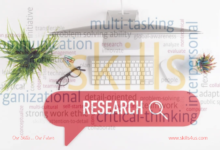
Talent Management Model Sets A Framework For Planning And Implementing Talent Management Strategies
The talent management model helps to navigate and improve the talent management process by visualizing its elements. Since applying the talent management model helps HR professionals visualize the employee journey within the organization. It also gives them a framework to plan and implement their talent management strategies and identify opportunities for improvement. Moreover, by focusing on each stage of the model, an organization can build a solid workforce to succeed in today’s competitive business environment.
Talent Management Model Framework
1. Set up a talent management process
By setting up a talent management process based on a pre-determined framework. HR professionals ensure the right talent for the organization to achieve its goals. In addition, employees have the skills and support needed to grow and develop in their roles. Which leads to greater engagement and productivity.
2. Prioritizing talent management practices
Prioritizing the talent management practices most influential in the organization’s strategy and operations is essential. Where it will have the most significant impact in achieving its strategic goals.
3. Giving employees opportunities for professional growth and development
Organizations can ensure their employees have the skill sets and knowledge necessary to perform their jobs effectively by investing in learning and development programs. As this results in higher performance, quality, and more significant innovation within the organization. Furthermore, when employees are given opportunities for professional growth and development, they are more likely to feel respected and valued. Which leads to increased motivation, productivity, and commitment.
4. Track talent management metrics
Tracking talent management metrics helps an organization’s leadership identify areas where the business strategy excels and areas that need improvement. Organizations can learn about trends and patterns to inform future talent management decisions through data collection and talent analytics.
5. Use the digital dashboard to display talent management processes
The digital dashboard provides a comprehensive view of talent management processes, allowing managers to make data-driven decisions. Note that the data displayed includes key performance indicators, such as retention, productivity, and engagement. Also, by tracking information in the dashboard, leaders can instantly identify areas that require improvement and develop strategies to address them. Moreover, with a digital dashboard, managers can make proactive decisions to address potential issues and align talent management strategies with organizational goals.
6. Integrating intelligent technology into talent management
Incorporating intelligent technology into talent management enables the automation of routine tasks, streamlining processes, and providing valuable insights into talent management strategies. The technology is a software platform that automates parts of critical processes such as recruitment, performance management, career development, and succession planning.
7. Review and evaluate talent management strategies and continually adjust approaches
Continuous evaluation and adjustment of work approach is vital to an effective talent management strategy, as it allows organizations to remain flexible and responsive to changing circumstances and the external environment. Therefore, regularly reviewing, evaluating, and adapting talent management strategies ensures that employees have the necessary skills and knowledge to ensure their continued effectiveness. This leads to increased innovation, productivity, competitiveness, and a more engaged and motivated workforce.
A transparent talent management model and strategy, implementing effective best practices, and leveraging intelligent technology will help the organization gain a competitive advantage.



